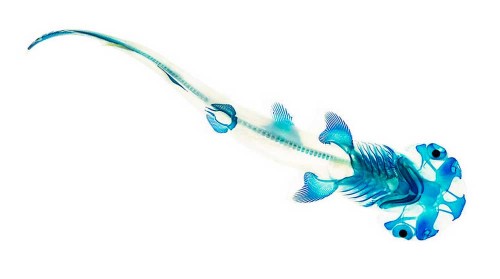What we're talking about  Thursday, September 11, 2014
Thursday, September 11, 2014
Too Hot, So Long
Dying from heat at work, acclimation lacking
The Pump Handle August 13, 2014
Failing to get the time to acclimate to a hot work environment can be deadly. That’s the message I took away from an item in last week’s Morbidity and Mortality Weekly Report (MMWR). “Heat illness and deaths among workers — U.S. 2012-2013” reports on 13 occupational heat-related fatalities investigated by federal OSHA. Nine of the…
New data: Lack of acclimatization procedures most often associated with worker heat deaths
The Pump Handle August 8, 2014
Today, the Centers for Disease Control and Prevention released new data on heat deaths among U.S. workers, underscoring the often-tragic consequences that result when employers fail to take relatively simple and low-cost preventive actions.
On July 5, James Baldasarre, a 45-year old a Medford, Massachusetts US Postal Service employee who had worked for USPS for 24 years, died from excessive heat. According to news reports, shortly before collapsing in the 95-degree heat, Baldasarre texted his wife to say, “I’m going to die out here today. It’s so hot.” On…
Channel Surfing
Life Science
It is called Spinosaurus aegyptiacus but it sounds a bit more like Godzilla. Spinosaurus is a theropod dinosaur (that’s the groups birds evolved within) found in what is now NOrth Africa, between about 112 and 97 million years ago. It was first discovered about one century ago, though those bones were destroyed during WW II.…
You know I’m a bit sour on the whole artificial intelligence thing. It’s not that I think natural intelligences are anything more than natural constructions, or that I think building a machine that thinks is impossible — it’s that most of the stories from AI researchers sound like jokes. Jon Ronson takes a tour of…
Until now I thought I had come up with enough reasons to dislike mosquitoes, those tiny little blood sucking vectors of disease. With reports of the debilitating mosquito-borne virus chikungunya in the Americas (Carribean), I was ecstatic hear that researchers are working hard to find ways to control mosquito populations. As mentioned in a previous…
Physical Science
“It does no harm to the romance of the sunset to know a little bit about it.” -Carl Sagan Although I often hear people utter sentiments that knowledge somehow undermines the beauty of the natural world — quoting some farcical poem about bad teachers like When I Heard The Learn’d Astronomer — I never quite understood it. How…
“I was confided to your loyalty and accepted by your treason; you offer my death to those to whom you had promised my life. Do you know who it is you are destroying here? It is yourself.” -Victor Hugo So those of you who’ve been paying attention may have just heard that we’ve mapped out…
Matt “Dean Dad” Reed has a post about the issue of academic conference travel, which is expensive and often the first thing cut out of college budgets. Which leaves faculty either disconnected from their field, or paying out-of-pocket to attend meetings that they need to demonstrate their scholarly productivity. This, in turn, tends to skew…
Environment
The public health community is mourning the loss of Andrea Kidd-Taylor, DrPH, MSPH, 59, who died on September 1 from cancer.
Until now I thought I had come up with enough reasons to dislike mosquitoes, those tiny little blood sucking vectors of disease. With reports of the debilitating mosquito-borne virus chikungunya in the Americas (Carribean), I was ecstatic hear that researchers are working hard to find ways to control mosquito populations. As mentioned in a previous…
Climate change is emotional, especially when the effects are disastrous and people’s lives are ruined. It is vague, sometimes. For example, bad weather happens and always has happened, so an increase in frequency or severity of bad weather isn’t necessarily qualitatively novel, and can be hard to put one’s finger on. Although the negative effects…
Humanities
The public health community is mourning the loss of Andrea Kidd-Taylor, DrPH, MSPH, 59, who died on September 1 from cancer.
Until now I thought I had come up with enough reasons to dislike mosquitoes, those tiny little blood sucking vectors of disease. With reports of the debilitating mosquito-borne virus chikungunya in the Americas (Carribean), I was ecstatic hear that researchers are working hard to find ways to control mosquito populations. As mentioned in a previous…
In-depth series investigates worker misclassification; NIOSH observes N95 Day; fast food workers take to the streets; and California moves toward paid sick leave law.
Education
Matt “Dean Dad” Reed has a post about the issue of academic conference travel, which is expensive and often the first thing cut out of college budgets. Which leaves faculty either disconnected from their field, or paying out-of-pocket to attend meetings that they need to demonstrate their scholarly productivity. This, in turn, tends to skew…
Climate Smart & Energy Wise: Advancing Science Literacy, Knowledge, and Know-How by Mark McCaffrey is a book written primarily for teachers, to give them the information and tools they need to bring the topic of climate change effectively to their classrooms. It addresses the Climate Literacy and Energy Literacy frameworks, designed to guide teaching this…
Until now I thought I had come up with enough reasons to dislike mosquitoes, those tiny little blood sucking vectors of disease. With reports of the debilitating mosquito-borne virus chikungunya in the Americas (Carribean), I was ecstatic hear that researchers are working hard to find ways to control mosquito populations. As mentioned in a previous…
Politics
Ken Cuccinelli posted a highly offensive cartoon on his facebook page in which Hillary Clinton is depicted in a position where she is about to be beheaded by a caricature of a Middle Eastern terrorist. That was posted on the even of the anniversary of 9/11. You will know of Ken Cuccinelli as the anit-climate-science…
How much will the Internet Slowdown slow down my Internet? It won’t. That is not what it is for or what it does even though that is exactly what it says it does. The name is more of an attention getter, and it is apparently working. Who is slowing down the internet? Nobody (see above)…
Until now I thought I had come up with enough reasons to dislike mosquitoes, those tiny little blood sucking vectors of disease. With reports of the debilitating mosquito-borne virus chikungunya in the Americas (Carribean), I was ecstatic hear that researchers are working hard to find ways to control mosquito populations. As mentioned in a previous…
Medicine
In the earlier days of the West African Ebola outbreak, it was not uncommon to hear people note that we should not panic about Ebola because, after all, far more people are killed from Malaria than Ebola. This is of course an irrelevant argument. That is like telling a person who has lost their family…
Regular readers of my not-so-super-secret other blog, where I write under my own name, know that last month Steve Novella and I published a rather nice (if I do say so myself) opinion piece in a peer-reviewed journal about what we called “clinical trials of magic.” In it, we argued that certain alternative medicine modalities…
The news is bleak. I don’t have a lot of confidence in the reported numbers. At one time it was said that on a nice Saturday in the summer, four out of five cars driving around in downtown Boston were looking for a parking place. This is somewhat like the situation in Liberia and possibly…
Brain & Behavior
Until now I thought I had come up with enough reasons to dislike mosquitoes, those tiny little blood sucking vectors of disease. With reports of the debilitating mosquito-borne virus chikungunya in the Americas (Carribean), I was ecstatic hear that researchers are working hard to find ways to control mosquito populations. As mentioned in a previous…
With the help of advice from a manicurist, Dr. Kate Mansfeld (University of Central Florida) has come up with a way to track hatchling sea turtles for the first time. After hatching, the turtles head straight for the ocean where they grow for about 10 years or so before returning to the same beach where…
Researchers in Peru have discovered four new species of tiny so-called “glass frogs” (family: Centrolenidae). Centrolene charapita: with the yellow splotches on its back, this species was aptly named after little yellow chili peppers. Their hindlegs also had fleshy little zigzag-like protuberances whose purpose is unknown. Cochranella guayasamini: This species is mostly green with yellow encircling its…
Technology
How much will the Internet Slowdown slow down my Internet? It won’t. That is not what it is for or what it does even though that is exactly what it says it does. The name is more of an attention getter, and it is apparently working. Who is slowing down the internet? Nobody (see above)…
Until now I thought I had come up with enough reasons to dislike mosquitoes, those tiny little blood sucking vectors of disease. With reports of the debilitating mosquito-borne virus chikungunya in the Americas (Carribean), I was ecstatic hear that researchers are working hard to find ways to control mosquito populations. As mentioned in a previous…
You can now see what happens when you tweet something. Twitter has a web page that tells you how many “impressions” a tweet has, how many “Engagements” (any kind of click on your tweet) and, for convenience, the percentage of tweets with which your tweeps engaged. There are also summary graphs for engagement rate, link…
Information Science
Confessions of a Science Librarian
Around the Web: A Creative Commons Guide to Sharing Your Science and more
A Creative Commons Guide to Sharing Your Science Why do some academic publishers think they should charge extra for more liberal licenses (CC BY)? The opportunity cost of my open access was 35 hours + $690 (UPDATED) The future of open access and library publishing Sick of Impact Factors Making a spectacle of scientific research…
Until now I thought I had come up with enough reasons to dislike mosquitoes, those tiny little blood sucking vectors of disease. With reports of the debilitating mosquito-borne virus chikungunya in the Americas (Carribean), I was ecstatic hear that researchers are working hard to find ways to control mosquito populations. As mentioned in a previous…
Confessions of a Science Librarian
Reading Diary: The Incredible Plate Tectonics Comic: The Adventures of Geo, Vol. 1 by by Kanani K. M. Lee & Adam Wallenta
This amusing book, Kanani K. M. Lee and Adam Wallenta’s The Incredible Plate Tectonics Comic: The Adventures of Geo, Vol. 1, is brought to us by the same people as the Survive! Inside the Human Body graphic novel series. As a result it has many of the same strengths but it also suffered from some…
Jobs
In-depth series investigates worker misclassification; NIOSH observes N95 Day; fast food workers take to the streets; and California moves toward paid sick leave law.
Some of the best research published in the last 12 months on worker health and safety topics is profiled in The Year in US Occupational Health & Safety: Fall 2013 – Summer 2014. The third edition of the report was released on Labor Day.
Yesterday, the nation celebrated its workers. However, new research finds that most workers face fewer and fewer reasons to rejoice.



